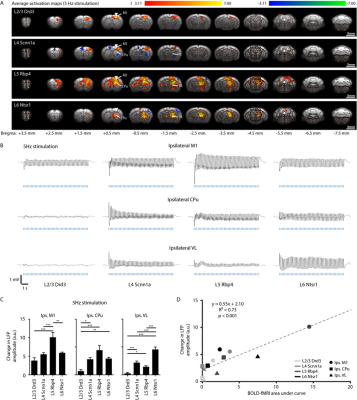Sunrise Course
Demystifying the fMRI Signal & Its Biophysical Origins III: Connecting the fMRI Signal to Other Modalities
ISMRM & ISMRT Annual Meeting & Exhibition • 03-08 June 2023 • Toronto, ON, Canada

| 07:00 |
 |
fMRI vs. Intra-Cranial Measurements in Animals
Russell Chan
Keywords: Contrast mechanisms: fMRI, Neuro: Brain function Understanding how individual cells and complex brain networks interact in both time and space is a grant challenge. Recent fMRI advancements provide opportunities to measure layer-specific cortical responses to potentially address key neuroscience questions. optogenetic fMRI (ofMRI) can map effects of controlling cell-type specific neuronal population. In this session, technical considerations in applying ofMRI and intra-cranial electrophysiological recordings will be examined. Subsequently, distinct local and brain-wide networks activated by optogenetic stimulation of neurons specific to different cortical layers will be reviewed, and layer-specific fMRI responses and their neuronal origins will be explored. Lastly, the opportunities and challenges will be discussed. |
| 07:30 |
fMRI vs. Electrophysiology in Humans
Patricia Figueiredo
Keywords: Contrast mechanisms: fMRI, Neuro: Brain function Because BOLD-fMRI probes neuronal activity indirectly and with a lag of a few seconds, based on neurovascular coupling mechanisms, several studies have attempted to clarify its neuronal correlates in humans by combining it with the simultaneous recording of the electroencephalogram (EEG). Like other electrophysiology techniques, EEG provides direct measures of neuronal activity with sub-millisecond temporal resolution, albeit poorer spatial resolution and coverage than BOLD-fMRI. In this talk, I will overview the main characteristics of electrophysiology relative to BOLD-fMRI as well as the evidence contributed by EEG-fMRI studies towards our understanding of the neuronal correlates of different types of BOLD-fMRI measurements. |
The International Society for Magnetic Resonance in Medicine is accredited by the Accreditation Council for Continuing Medical Education to provide continuing medical education for physicians.